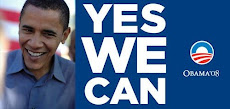Special to CNN
Editor's Note: Steve Clemons is director of the American Strategy Program of the New America Foundation and publisher of the influential political blog, The Washington Note. He has served as executive vice president of the Economic Strategy Institute and as senior policy adviser on economic and international affairs to Sen. Jeff Bingaman, D-New Mexico. The New America Foundation is a nonprofit institute that says it seeks "new thinkers and new ideas to address the next generation of challenges facing the United States."

Steve Clemons says appointing Hillary Clinton is a high-risk move that could pay off for Barack Obama.
(CNN) -- Hillary Clinton? Secretary of state? What is Barack Obama thinking?
This rock star president-elect may either be confused, deluded and self-destructive in sculpting a political and policy team that has a high probability of paralyzing itself in vicious internal skirmishes, or he may just be brilliant -- really, really brilliant.
Rahm Emanuel, considered by many to be the most thuggish (and effective) of the Democratic machine's partisans, is Obama's chief of staff.
Joe Lieberman, disloyal former Democrat who headlined the Republican National Convention calling GOP vice presidential candidate Sarah Palin "strong. . .compelling...competent!" will keep his place in the Senate Democratic caucus -- as well as his powerful perch as Chairman of the Committee on Homeland Security.
While not yet announced, indications increasingly point to Bush administration Defense Secretary Robert Gates being rewarded for out-Cheneying Cheney, having vital stewardship over America's complex Iran, Pakistan and Afghanistan portfolios and thus staying on as Obama's Defense chief.
Now we may be on the verge of an announcement that Obama's "never give up, never surrender" rival to lead the Democratic Party, Hillary Rodham Clinton, may be nominated as Obama's secretary of state.
These early moves have been very difficult for the most liberal elements of the Democratic Party to digest as they feel they helped move the unlikely candidacy of Obama to triumph over the mainstream Clinton campaign. Now they are seeing their candidate "go Clinton" on them, at least in a number of his early political appointments.
Don't Miss
George W. Bush perhaps set the precedent of appointing his chief rival within the Republican party, Colin Powell, to secretary of state as a way to secure the shrewd general's skills and to politically neutralize him.
Obama may be doing the same with Hillary Clinton -- offering her a prize through which she may yet secure a distinctive place in history and taking from her the chance to challenge him again if the 2010 midterm elections go bad for Obama.
What would Obama be getting in Clinton if she is nominated?
Clinton thought Bush should boycott the opening ceremonies of the Chinese Olympic Games in order to highlight China's human rights abuses in Tibet and its lack of will to assist in pre-empting incremental genocide in Darfur.
This is tough talk when China's support is needed on nuclear nonproliferation, climate change, global economic stabilization and virtually every major issue facing the international system.
Clinton supported the congressional resolution that was the basis for the Bush administration's invasion of Iraq. She repeated this tendency to tilt toward the assertion of military force by voting in favor of the highly controversial resolution designating the Iranian Revolutionary Guard a terrorist organization.
Clinton has advocated "coercive diplomacy" and believes carrots and sticks are needed in any sensible national security strategy. That in itself is not controversial, but she tended to focus more on the sticks than the carrots.
Interestingly, when Obama and Clinton were battling each other in a neck and neck race, Israeli public opinion polls showed huge support for Clinton, followed by John McCain, with Obama in a distant third. Why? Because many Israelis, rightly or wrongly, thought Clinton would be coercive with Iran and would hug Israel closely at the expense of other Middle East Arab interests -- and Obama would not.
The Clinton we have grown accustomed to over the last year is perceived as a spear-carrier for the Madeleine Albright school of values-driven liberal interventionism. Albright proponents argue that in contrast to the reckless efforts of neoconservatives to spread democracy and promote global justice at the end of a gun, Albright got regime change right in the Balkans.
Obama is the guy who wanted to meet the world's most thuggish leaders, who wanted strategic change, and who wanted to avoid the "wrong kind of experience" -- implying Clinton's team was riveted in the past and not ready for the future. Obama strategist David Axelrod went so far as to tie Clinton to some responsibility for Benazir Bhutto's death for not doing more to stop Bush's wars in the Middle East.
Despite all of these differences, hiring Clinton may be a masterstroke of genius that has all the markings of a high-risk, high-reward move with which this political tycoon Obama has grown comfortable.
By bringing her on, Obama finally gets the keys to the Clinton political franchise, adding it to the Daley, Daschle and Kennedy Democratic party franchises he has already acquired and integrated. Obama neutralizes a potential rival for the 2012 race.
In all honesty, Clinton probably calculated that this new star in the White House won't be handed a rebuke consequential enough in 2010 -- no matter his performance -- to animate a credible challenge against him in the next round of Democratic primaries. And Clinton has never acquiesced to the dreary reality of being a perpetual senator of New York -- just not good enough to burnish her place in the history books.
Add to this that despite their differences, Clinton is one of the hardest working and most intelligent policy wonks in the business. She understands microcredits and used to hang out in the mid-1980s in Arkansas with their advocate, 2007 Nobel Peace Prize winner Muhammad Yunus.
She crusaded and lost on a universal health care plan during Bill Clinton's first term -- and regrouped during her campaign, self-critically adjusting and re-drafting her approach to health care.
Clinton deploys ideas, tears them up when they don't work and relaunches them. She's tenaciously committed to results.
If Obama wants to change the strategic game on Iran, Israel-Palestine, Syria, Cuba, Russia and other challenges, he will need partners who are perceived as tough, smart, shrewd and even skeptical of the deals he wants to do. Clinton is all of these.
Clinton may be the bad cop to Obama's good cop. Because she is trusted by Pentagon-hugging national security conservatives, she may legitimize his desire to respond to this pivot point in American history with bold strokes rather than incremental ones.
Bush came into his job focused on making faith-based politics and tax cuts the hallmarks of his administration. He forfeited to Vice President Cheney and his team enormous latitude in defining Bush's national security agenda.
Obama seems like he has no intention of doing something similar. He intends to, in part, be his own secretary of state, focused on re-sculpting America's global social contract and working in partnership with a diverse team of hard-edged policy players like Clinton to make even his rivals do his direct bidding.
This could be a kind of proactive agenda-setting in foreign policy we haven't seen in decades. Obama does not want an ad hoc, reactive presidency -- and he wants to succeed.
Clinton has a lot of reasons to pull cooperatively with Obama and may want to help America achieve a new strategic direction and establish a new global equilibrium -- securing Obama's place in history, and her own.
The opinions expressed in this commentary are solely those of Steve Clemons.




No comments:
Post a Comment